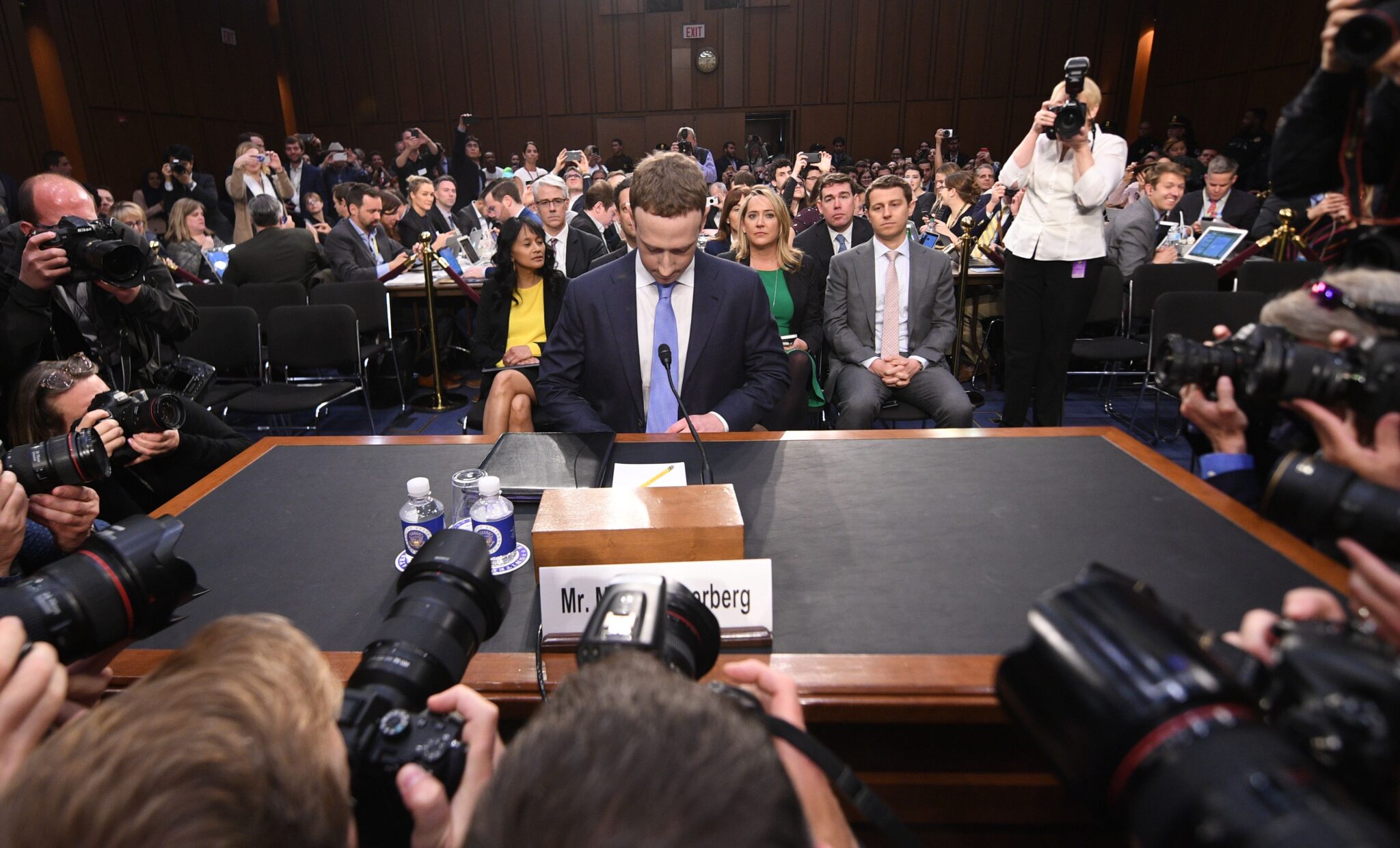I don’t know about you, but when I watch Mark Zuckerberg at his frequent congressional inquisitions, I am reminded of when I was interrogated by my high school principal: youthful mischievousness trying to hide behind a veneer of remorse and accommodation; exaggerated politeness and earnestness when answering legislators; gobbledygook subterfuge characterizing his evasive responses. He seems miles away from the hoodie-clad enfant-terrible strutting across Facebook’s presentation stage of yesteryear.
To some degree, I respond the same way when watching Jack Dorsey of Twitter, Robinhood founder Vladimir Tenev and Reddit’s Steve Huffman, all of whom have been called before Congress recently to explain to more aged legislators exactly how and what they did to create havoc. The poster child for this youthful innovation is, of course, Amazon’s Jeff Bezos, who has spent time in the glare of congressional lights.

It seemed clear that the House Committee on Financial Services did not understand how a website (Reddit) could cause a stampede wherein multitudes of stock buyers placed buy orders for GameStop (GME), a publicly-traded company. The anarchy caused by Reddit’s flash mob cratering the once orderly liquidity of his company seemed beyond Tenev. House members shared in this confusion. Additionally, the established traders, all set to profit from GameStop’s fall, did not think their pockets were going to be picked by house-bound kids with a Robinhood app.
Several other youthful wunderkinds have written apps that altered reality: Google brainiacs Larry Page and Sergey Brin, Uber co-founder Travis Kalanick, plus global housing disruptor Airbnb’s Brian Chesky and Joe Gebbia. There are scores of others who have written apps that have upended industries and services or permanently changed the course of commerce’s currents.
Of course, innovation has always changed our lives. Electricity replaced the whale oil industry; the internal combustion engine destroyed the horse and buggy trade. However, these changes took decades. Today’s take months to years.
Absolutely brilliant, very youthful technology entrepreneurs are writing apps that, in the parlance of Silicon Valley, “disrupt” established industries including media, transportation, the stock market and housing. When these apps are written in a college dorm (Facebook) or the basements/garages of their parents (Apple, Amazon, Google, HP and several others) little do these entrepreneurs anticipate that the unintended consequences of their actions may be so disruptive as to destabilize the market they are targeting. I doubt Uber’s Kalanick imagined that the taxi drivers of Paris and then greater France would stage a violent protest over their loss of livelihood. It is doubtful Airbnb’s Chesky and Gebbia could have known that cities as far afield as Barcelona and New Orleans would have to rewrite their housing codes as global renters forced out locals; the original Airbnb plan was about low-impact couch sharing.

Much has been written and discussed about the global ramifications of technology companies reshaping the world in their image. Way back in 2013, Kevin Kelly wrote Out of Control, an insight into how technology affected us in ways we could not understand…until it was too late. In a recent Atlantic article, Derek Thompson revealed that “the absolute toxicity of the web” has resulted in less productivity and more inequality.
Congressional hearings, starring the youthful app writers mentioned above, highlight the real problem: Like circus animal-act cleaner-uppers, the government is always too late to stop the mess. It can only try to remediate the powerful effects of the apps. A great example of this is New York City’s plan to pay $65 million to bankrupted yellow-medallioned cab drivers, some driven to suicide by competition from Uber and Lyft. Downtowns, that barely survived big box stores like Walmart and Target, find themselves empty once again thanks to e-commerce giant Amazon. The entire tax base of these cities and states, taxes that support schools, roads and hospitals, need to be recalibrated due to the revenue draining out of their physical stores and into one distant corporation.
Not content with just physical commerce, these boys-with-toys have moved on to information commerce. Hence their return visit to congress, which was trying to assess their role in the insurrection of January 6. Mary Shelley, author of Frankenstein, would have understood this moment where a somnolent FTC and compliant anti-trust division in the Justice Dept granted legal freedoms to Facebook, YouTube, Twitter and Google. The result? A functioning democracy was threatened by a mob bent on the destruction of those same institutional protections. All of us in the business community may look back on this congressional inquiry as the turning point where the government, in an act of self-preservation, tries to rein in and regulate the boys with apps.
How will they do this? There are no simple solutions because the companies under scrutiny are already so dominant, so powerful, it is hard to imagine putting the genie back in the bottle. Clearly, however, those calling to break them up may have the loudest voice. Much tech giant growth has come from the acquisitions of competing services. Google bought directions competitor Waze in 2013 and voila no more threats to Google Maps. Next, they acquired YouTube. Facebook bought Instagram.
According to Wikipedia, Amazon has bought 104 companies that either could have eaten into its profits or had technology useful to its competition…the concentration of power goes on and on.
Walking down a steep mountain is never easy. Unravelling the tech giants that have a stranglehold on our daily existence will be one misstep after another. However, the decision to head down the mountain, the realization that a bad, perhaps fatal, the storm is coming and that the adventure could end in disaster, is the most important reality to face.
After listening to the boys’ testimony, it is clear that even the polarized parties in government have realized it’s either them or us.







